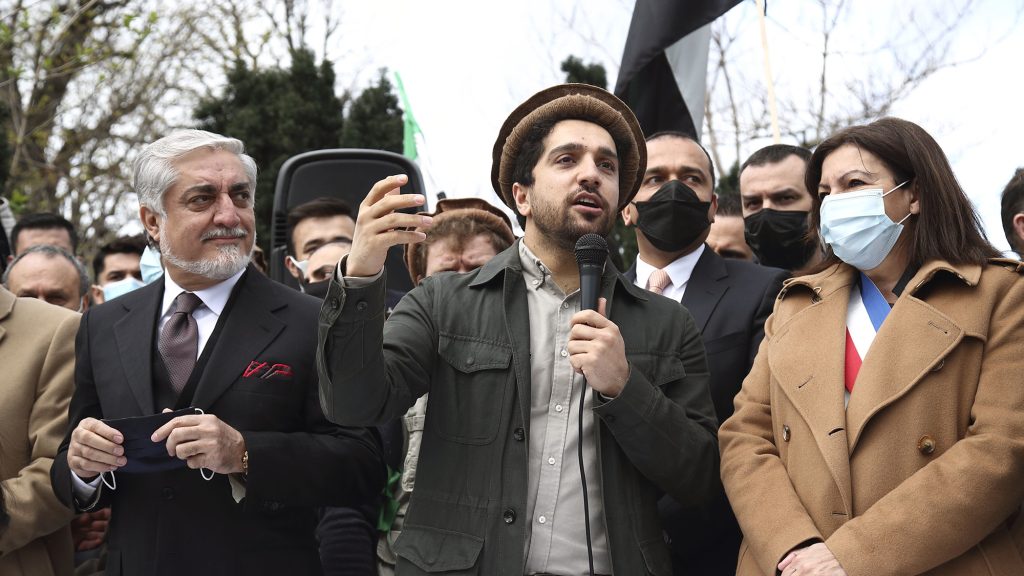
One year after his country fell to the Taliban, Ahmad Massoud isn’t giving up his fight.
At this time last year, as the militant group swallowed up vast swaths of Afghanistan, the son of famous anti-Soviet resistance commander Ahmad Shah Massoud pledged during an exclusive Atlantic Council interview that he’d seek talks with the Taliban.
Now, however, Massoud says the group remains uninterested in either dialogue or reforming its backward ways. That’s why his fledgling military alliance, the National Resistance Front (NRF), is pressing on with armed resistance.
“There’s no other option but to resist until [Taliban members] understand and realize they need to also submit—as [do] all of us—to a legitimate process which brings a legitimate government which is accountable to the people of Afghanistan, and also to the world,” he told Kamal Alam, a nonresident senior fellow at the Council’s South Asia Center and a special adviser and representative of the Massoud Foundation (of which Massoud is the president).
Here are some key takeaways from their conversation:
No partner to negotiate withImmediately after the Taliban takeover of Kabul on August 15, 2021, Massoud recalled, he and his allies—while stationed in the Panjshir Valley—tried to engage the Taliban and make the group understand that “legitimacy in Afghanistan… cannot come though the barrel of a gun” but through the voice of the people.
That didn’t work. Massoud claims the group’s message was clear: “We expect nothing less than surrender” and a pledge of loyalty to the regime. That’s when Massoud and others formed the NRF, which has attacked Taliban forces and weathered counterattacks in recent months. The fight will continue, Massoud said, until “the Taliban realize that the military regime, or a militant group’s rule over a country, is not an option.
”While Massoud said the NRF tried working with regional actors to hammer out some sort of peace with the Taliban, those efforts also failed. “Unfortunately,” he noted, Taliban leaders “have not changed. They are even more radical than before.”
Don’t be fooled
Massoud urged world leaders to avoid considering the group a “Taliban 2.0” that somehow changed for the better after returning to power. “They failed in fighting international terrorism because they share the same ideology” as terrorist groups, he said. “They failed in creating inclusivity because they don’t believe in it.
” Massoud, whose father was assassinated by al-Qaeda just days before the September 11 attacks, pointed to the Taliban’s apparent sheltering of al-Qaeda leader Ayman al-Zawahiri, who was killed by a US airstrike last week. The fact that Zawahiri was living in central Kabul is “a clear indication that [Taliban leaders] have completely aligned with such terrorism entities and organizations,”
Massoud said.Other extremist groups, such as the Islamic Movement of Uzbekistan, are also finding safe haven in Afghanistan, he added—and by turning a blind eye to this trend, the international community would make “a catastrophic mistake” with wide-ranging consequences.
Help wanted
While the NRF is determined to fight on for a democratic and decentralized government in Afghanistan, its struggle is a lonely one because “no country is supporting us,” Massoud said.
While the Taliban remains officially unrecognized since it seized control of the country last year, several countries in the region continue to station ambassadors in Kabul. Massoud said these diplomatic overtures are rooted in worries that the Taliban’s “incompetent” governance will produce bigger security challenges: “The countries’ engagement with the Taliban [is] solely based on this one factor, which is fear.”
Invoking Western support for Ukraine and Taiwan in their struggles against Russia and China, respectively, he added that Afghans would see “hypocrisy” in the West’s failure to also help the Afghan people fight off their own tyrants. “We are working with our people for the values and for the livelihood which we truly deserve,” he explained.
No comments:
Post a Comment